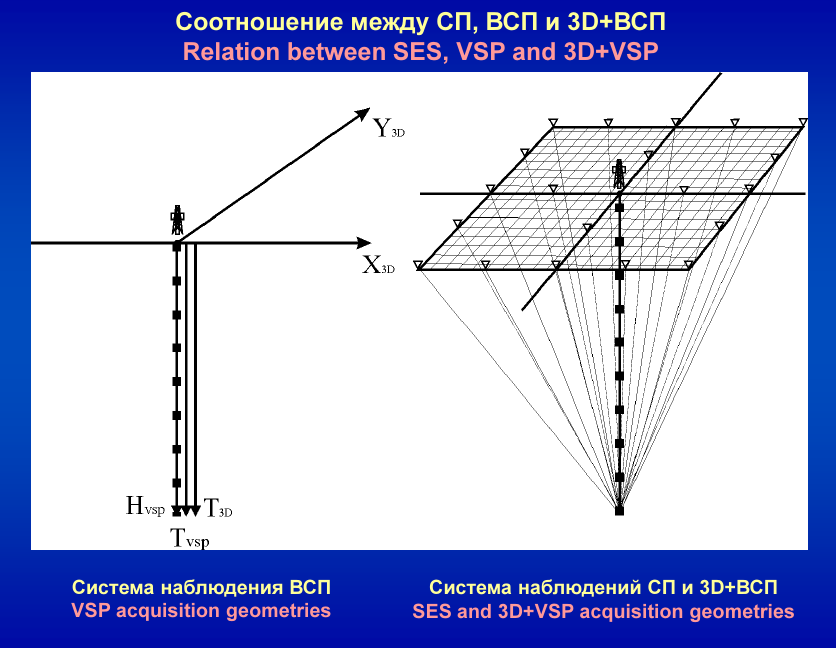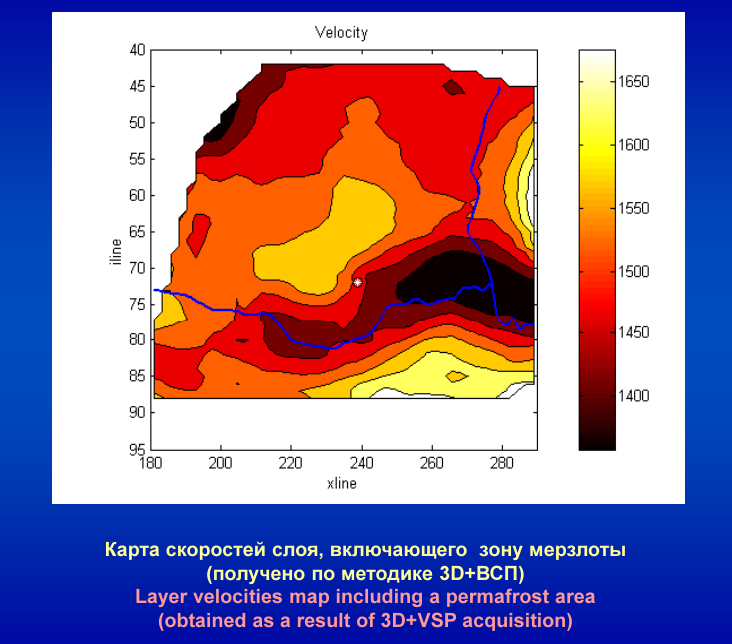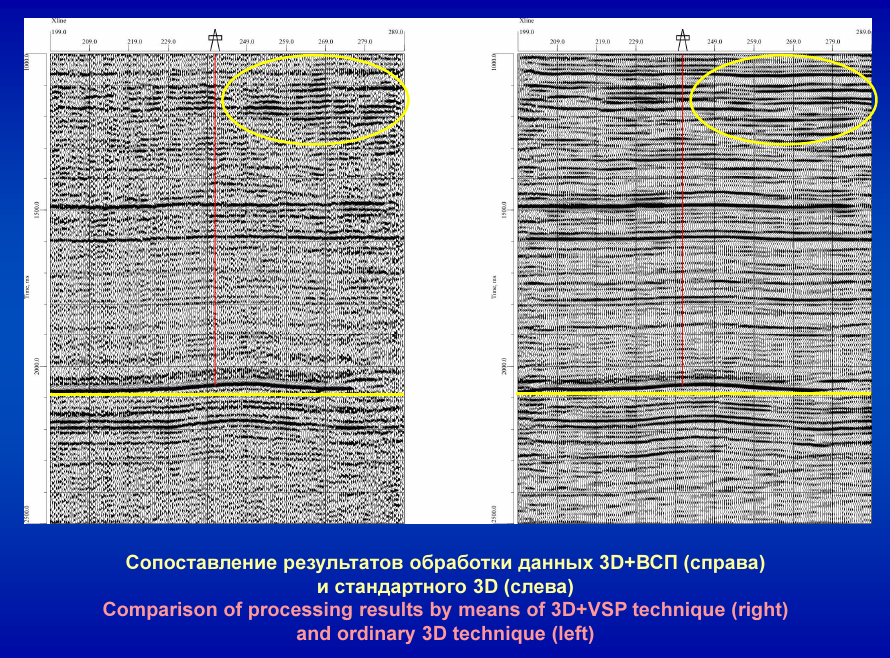3D surface seismic processing.
Main items
- Critical situation when mature oil
deposits are exhausted leads to the need
for extraction of residual oil deposits
from old reservoirs and development of
new small reservoirs characterized by
complicated geological structure.
- Solution of the specified problem
requests for more detailed and accurate
models of productive layers to be
recovered from seismic exploration data.
- Both modern surface seismic
exploration and VSP technologies feature
a set of principal drawbacks constraining
further increase in accuracy and
resolution of processing results.
- Modern 3D acquisition geometries
2D+VSP and 3D+VSP provide for
integration of the surface seismic and
VSP surveys allowing to solve the
identified problems.

Drawbacks of Seismic Exploration on the Surface (SES)
- Lack of information about actual P and S waves velocity distribution
- Exact information about signature is not available
- Imaging procedures is based on sub-horizontal velocity model

Conclusions
Two applications of combined surface and downhole acquisition geometries are described. They are
called “2D+VSP” and “3D+VSP”. The advantages are based on the use of downhole arrival times and
signatures to improve surface seismic data. The case stories approve the proclaimed features of proposed
technology.
- Seismic prospecting on the surface solves
main modern exploration problems, but
contains fundamental limitations:
- inaccurate velocity model
- inaccurate signature determination
- simplified model for migration.
- SP provides accurate solutions to tie
surface reflections to logs and investigation of
near borehole space for small offsets. But all
modifications of VSP including 2D VSP and 3D
VSP contain sufficient uncompensatable errors
due to insymmetrical acquisition geometry..
- Combined acquisition geometries 2D+VSP
and 3D+VSP provides more accurate solutions
for next problems:
- adjustment of velocity models
- estimation of true signature
- model-based vector migration.
- 3D acqusition systems and model-based
processing may be recommended as one of
leading developments for improvement of
resolution and accuracy of seismic exploration
to meet challenges of oil industry.

Modern state of hydrocarbon resources and exploitation temps of oil deposits
demand for significant increase in resolution and accuracy of seismic studies of
productive layers to successfully deal with complicated reservoirs and residual
deposits.
The proposed concept of integrated three-dimensional acquisition geometries
(2D/3D+VSP) allow to combine strong features of both surface seismic and VSP and
extend informational value of seismic exploration


